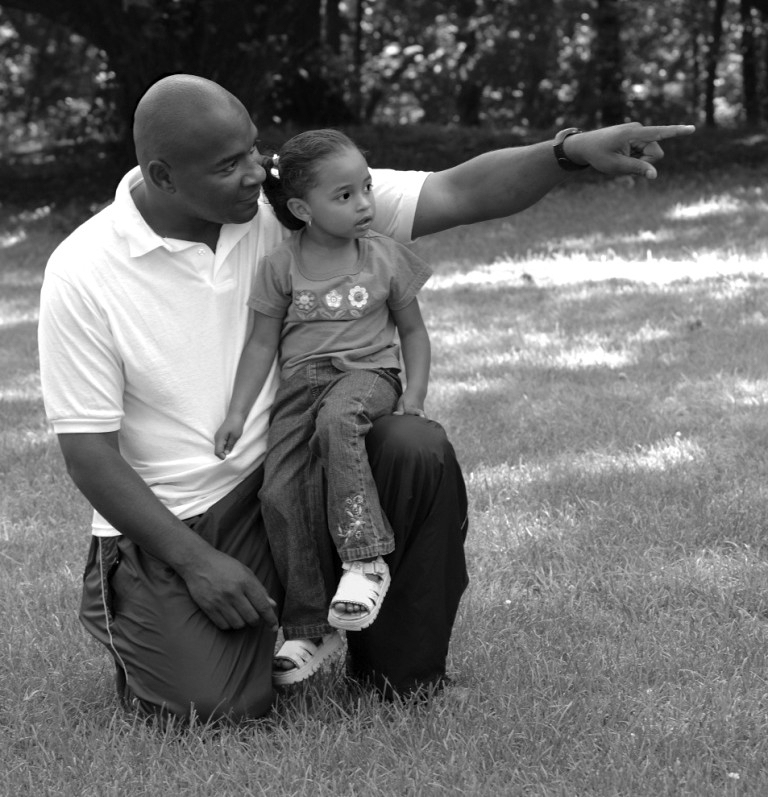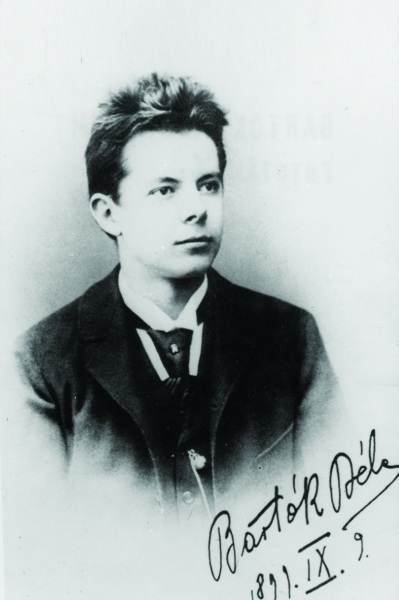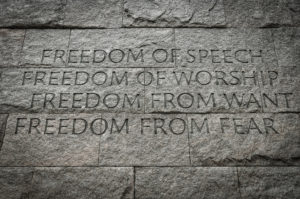Charlottesville is Us
August 13, 2017This morning the nation must look squarely at images of people marching through Virginia with hateful slogans, confederate flags, and Nazi swastikas, who proudly proclaim that White Lives Matter and scream hateful epithets about Jews and gays and immigrants, who believe that slavery reflected a natural order. Some will say, in coffee hours in Unitarian Universalist congregations, that THOSE people are the white supremacists and people like Unitarian Universalists should not call ourselves that because it is confusing, people might think we are like them. I dearly hope those words will not be spoken from our pulpits. Read more →
A Creative Life
April 7, 2017Béla Bartók was a Hungarian pianist and composer who added a great deal to our world through his creativity. He started playing piano as a tiny child, and knew 40 songs by the time he was four—and gave his first public recital , including an original composition he’d written two year earlier, when he was eleven.
Bartók went on to become a famous composer who not only wrote his own music, but also went out around the countryside gathering folk music, which he often worked into his compositions. While he was collecting music from the Székely people in Transylvania he learned about Unitarianism.
He liked the idea of a creative religion that was less about following rules and more about connecting with all aspects of life. He eventually joined a Unitarian church in Hungary, and attended with his son.
With the rise of a fascist government in Hungary and the approach of the Second World War, Bartók fled to the United States. He was safe there, but felt lonely and disconnected from his homeland, and it was hard for him to continue to write music. But when he was diagnosed with leukemia and knew that he did not have very long to live, his creative energy returned in a burst and his last compositions are often considered his greatest.
To learn more about Bartók and listen to some of his music, visit the NPR story, “Béla Bartók: Finding a Voice Through Folk Music”
Music: Béla – Evening in the village
Here is one of Bartók’s compositions, titled “Evening in the Village.” The tune comes from a folksong, which is called the “ancient Székely anthem.” The pictures in the video were almost all taken in Transylvania, where Bartók discovered Unitarianism. (The one with the gate was taken in Máriabesnyő, a famous shrine in the outskirts of Budapest.)
Choosing When to Pray
November 1, 2016Prayer is an important part of the spiritual lives of many UUs—but we also are clear that people need to choose for themselves how and when they will pray. It isn’t the government’s place to decide that for people.
In the early 1960s the UU Schempp family helped to make that clear in American law. Sixteen-year-old Ellery Schempp wasn’t comfortable with having to say the Lord’s Prayer and listen to Bible readings at his public school. His parents, Ed and Sidney Schempp, talked about the issue with Ellery and his siblings Roger and Donna. Together they decided that not only was it not right for Ellery to have to say a prayer he didn’t believe in, no kid should be required to say a prayer that didn’t match their beliefs or faith tradition.
So the Schempps challenged the school in court, and their case went to the Supreme Court. In 1963 the court ruled in Abington Township School District v. Schempp that it was unconstitutional for a public school to expect students to participate in school-sponsored religious activity. The 1st Amendment of the US Constitution guarantees freedom of religion, and a UU family stood up to make sure that children were included in that guarantee.
Calling Forth Justice
May 1, 2016Podcast: Download (Duration: 12:48 — 11.7MB)
Subscribe: More
How many of you have a decent relationship with the Bible —as in, you’ve had at least a couple of conversations and neither of you left angry? Read more →
Anger and Justice
May 1, 2016Podcast: Download (Duration: 14:08 — 12.9MB)
Subscribe: More
The only word repeated more than once in our seven UU principles is the word “justice.” We are called to justice. Read more →
A Public Voice for Justice
May 1, 2016Podcast: Download (Duration: 0:49 — 767.9KB)
Subscribe: More
At the CLF we strive to be a public voice for justice and to curate a conversation that leads to deeper understanding of how we can build a more just world. Read more →
Justice Behind Bars
May 1, 2016Podcast: Download (Duration: 3:46 — 3.4MB)
Subscribe: More
 Three of our CLF prisoner members wrote pieces for Quest Monthly on the theme of Justice. What follows are excerpts from these pieces. Read more →
Three of our CLF prisoner members wrote pieces for Quest Monthly on the theme of Justice. What follows are excerpts from these pieces. Read more →
From Your Minister
May 1, 2016Podcast: Download (Duration: 7:18 — 6.7MB)
Subscribe: More
When it comes to justice-makers on the front lines, one group of people often shows up—mothers. And when mothers truly know that, as the saying goes, “there’s no such thing as other people’s children,” I believe we have the power to accomplish anything. Read more →
REsources for Living
May 1, 2016Podcast: Download (Duration: 4:43 — 4.3MB)
Subscribe: More
 In her column, Rev. Meg talks about how mothers have a special urge toward justice, born out of a fierce love for their children that demands a world where those children—all children—can be safe and respected. Read more →
In her column, Rev. Meg talks about how mothers have a special urge toward justice, born out of a fierce love for their children that demands a world where those children—all children—can be safe and respected. Read more →
Did You Know?
May 1, 2016Podcast: Download (Duration: 0:27 — 632.2KB)
Subscribe: More
…that the CLF offers a variety of online classes? Check it out here. Read more →
Renew Your Membership
We invite you to join your fellow CLFers to renew your CLF membership and stewardship of the CLF for another year.
Support the CLF
Can you give $5 or more to sustain the ministries of the Church of the Larger Fellowship?
If preferred, you can text amount to give to 84-321
Newsletter Signup
About
Quest for Meaning is a program of the Church of the Larger Fellowship (CLF).
As a Unitarian Universalist congregation with no geographical boundary, the CLF creates global spiritual community, rooted in profound love, which cultivates wonder, imagination, and the courage to act.
Contact
Church of the Larger Fellowship Unitarian Universalist (CLFUU)
24 Farnsworth Street
Boston MA 02210





